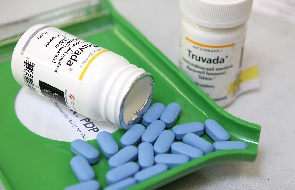Until the outbreak of the coronavirus pandemic late last year, HIV/AIDS was regarded as the world’s worst epidemic humanity had ever faced.
Many countries and its citizens endured devastating long-term socio-economic and personal impacts and in some cases the disease became a major obstacle to development.
AIDS is caused by HIV, a retrovirus that attacks the immune system. The virus destroys CD4+ T cells, a type of white blood cell that is vital to fighting off infection.
AIDS is treated with antiretroviral drugs. These drugs suppress HIV but do not completely eliminate the virus from the body.
Health experts were alarmed initially because of its devastating effect on human beings and said then that, the “exceptionalism” of the disease required “exceptionalism” in the response.
So, the then UN General Assembly meeting on HIV/AIDS in New York, on September 22, 2003, WHO Director General Jong-Wook Lee, requested that the disease be treated as a global health emergency and called for implementation of free HIV/AIDS treatment in resource-poor settings.
“Given the nature of the AIDS epidemic, providing free treatment should be imperative even if it cannot be applied to all diseases or all in need,” he said
Since then, anti-retroviral agents remained the cornerstone of HIV treatment and prevention and all HIV-infected individuals with detectable plasma virus presently receive treatment with recommended initial regimens.
Today, there have been substantial advances in the use of antiretroviral drugs (ARVs) for the treatment, progression as well as prevention of HIV infection disease.
So, globally, people are living longer with anti-retroviral drugs medications which help the body fight off life threatening infections.
However, with the outbreak of COVID-19, it appears the world’s attention is now focussed on the ensuing pandemic to the neglect of other diseases.
Consequently, many countries including Ghana are facing shortage of Anti-Retroviral Drugs (ARVs) for the treatment of Persons Living with HIV (PLHIVs), according to Health and Development Non-Governmental Organiations in Ghana.
According to them, out of a target population of 193,901 PLHIVs who were supposed to be put on the ARVs treatment, only 173,000 were currently benefiting from the treatment due to the non availability of the drugs at designated health facilities across the country.
The spokesperson of the group, Mrs Cecelia Senoo, said “70,000 packs of the ARVs which were expected to be procured by government with delivery in December last year, have still not arrived. “
Without adequate access to their life saving medicines, she said, PLHIVs risk developing drug resistance that could also lead to potential deaths.
Mrs Senoo described the situation as dire and advised the government to take urgent steps to avert a looming disaster.
We must state clearly that we acknowledge the challenges facing the government in the midst of COVID-19 and the competing demands facing the nation. We as well cannot fail to recognise the obstacles to effective health care in the country.
However, we add our voice to the call for urgent and adequate supply ARVs to provide treatment to PLHIVs to assist them to gain greater access to, remain adherent to, and avoid instability in treatment regimens.
We also urge that the country avert at all times shortage of the ARVs in order not to jeopardise the treatment programme of the nation.
Editorial News of Saturday, 25 July 2020
Source: ghanaiantimes.com.gh

















